Posted on 12/24/2023
.jpeg)
Every time you press the brake pedal, a combination of parts and components start working together beneath your vehicle. Your brakes, like a diligent team, rely on components working in harmony to ensure your safety on the road. One pivotal player is often overlooked - the brake rotor - especially when talking about maintenance and spotting signs of problems. Understanding Brake Rotors Before we unravel the signs of distress, let's acquaint ourselves with the main character of today's article - brake rotors. These flat, shiny discs rotate with the wheel and are crucial in converting kinetic energy into heat, bringing your vehicle to a controlled stop by the brake pads pressing against them. It is as simple as that. The Ideal State o ... read more
Posted on 11/29/2023
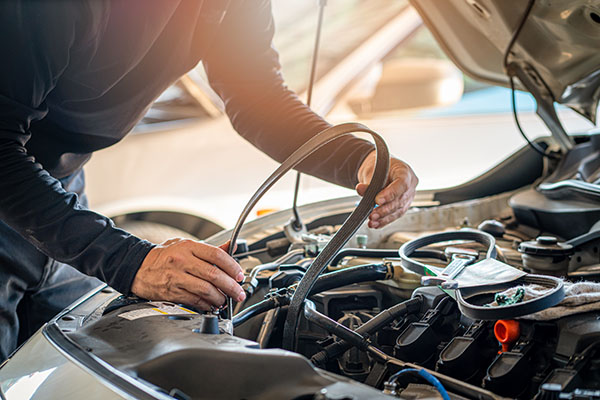
In the heart of your car's engine lies something controlling a synchronized process of precision and power – the timing belt. This often-overlooked component plays a critical role in the seamless operation of your vehicle, connecting the engine's crankshaft and camshaft and ensuring that they operate in perfect harmony. The Function of a Timing Belt Your engine is a balanced act in which each piston and valve contributes to the process. The timing belt acts as the controlling unit, directing the ensemble with meticulous timing. It ensures that the valves open and close at the precise moment, preventing them from colliding with the pistons. Five Signs of Timing Belt TroublesA Strange Wail Listen for a high-pitched screech emanating from your engine bay. This eerie serenade is often the first i ... read more
Posted on 10/28/2023
.jpeg)
Today, we're embarking on an interesting and simple DIY project under the hood of the 5th generation Nissan Altima and its successors - in other words, 2013 and newer). You see, owning a car is not just about driving; it's about nurturing your automotive companion. And one of the most fundamental ways to show that love is by changing the engine oil. So grab your toolbox, and let's uncover the secrets to keeping your Altima's heart running strong. Step 1: Gather Your Arsenal Before you dive into the oil-changing adventure, you'll need to assemble your toolkit. This should include an oil filter wrench, a funnel, a drain pan, a socket set, and, of course, the star of the show, the fresh engine oil. Make sure you've got the manufacturer-recommended oil type and filter ready; your Altima deserves nothing less. Step 2: Prepare for Action Park y ... read more
Posted on 9/30/2023
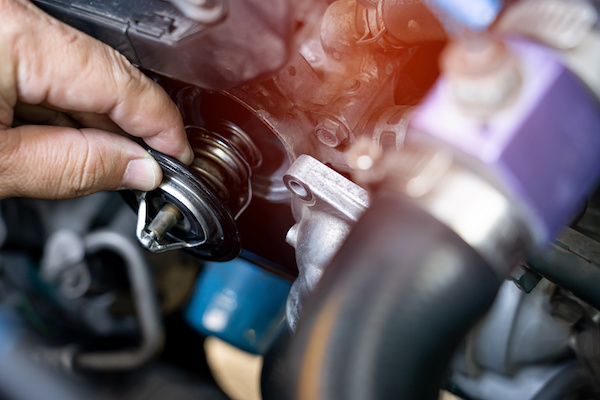
Your car's engine operates within a specific temperature range to ensure optimal performance and fuel efficiency. The thermostat, a small but vital component, plays a crucial role in regulating this temperature. However, like all parts of your vehicle, thermostats can wear out over time. Understanding the Thermostat The thermostat is essentially the gatekeeper of your car's cooling system. It's located between the engine and the radiator and consists of a valve connected to a temperature-sensitive element. When you start your car, the thermostat remains closed, preventing coolant from circulating between the engine and the radiator. As the engine warms up, the thermostat gradually opens. This allows coolant to flow, helping to regulate the engine's temperature. If the engine gets too hot, the thermostat opens wider, allowing more coolant to circulate and cool it down. Conversely, if the en ... read more
Posted on 8/31/2023
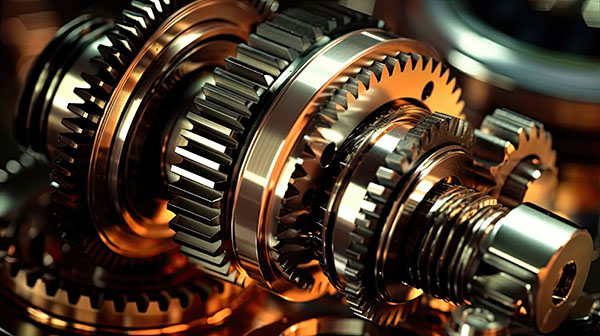
In the mesmerizing ballet of machinery, where cogs interlock and gears spin with orchestrated precision, lies a hidden aspect guarding the realm of smooth operation – lubrication. Welcome to a realm where bad component lubrication orchestrates a symphony of chaos, turning the once fluidic elegance into a discordant rhapsody of wear, heat, and inefficiency. Friction and Wear At the heart of every mechanical system, friction and wear wage a dance of constant compromise. It's the lubricant's role to tame this tempestuous tango, creating a buffer zone where surfaces glide rather than grind. But what happens when this lubricating embrace weakens? Chapter 1 unveils the unsettling consequences of inadequate lubrication, where the once balletic movement gives way to destructive abrasion, resulting in premature component fatigue and failure. From bearings that groan under duress to pistons that stutter and strain, the theater of friction plays out a tragi ... read more
Posted on 7/30/2023

As a responsible vehicle owner, you've likely come across the term "General Service" in your vehicle's maintenance schedule. But what exactly does it entail, and why is it crucial for your car's health and longevity? Today, we will take a close look at this topic, dissect it and see its in-and-outs, so if this seems interesting, continue reading! What is General Vehicle Service? General vehicle service, often referred to as regular maintenance, encompasses a comprehensive set of inspections, adjustments, and replacements aimed at maintaining your car's optimal performance and preventing potential issues. It involves a series of routine checks and servicing tasks designed to keep all systems and components in top condition. Why is General Vehicle Service Important?Reliability and Safety Regular general service enhances your car's reliability and safety. By identifying and addressing minor issues before ... read more
Posted on 6/30/2023
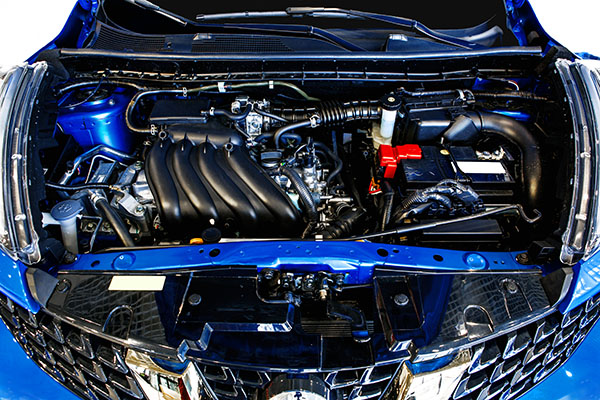
Regular fluid maintenance is essential for keeping your car running smoothly and ensuring optimal performance and longevity. Various fluids, such as engine oil, coolant, transmission fluid, brake fluid, and power steering fluid, play vital roles in lubricating, cooling, and operating different components of your vehicle. Over time, these fluids can degrade, become contaminated, or lose their effectiveness, potentially leading to mechanical issues if not addressed promptly. Here are some key indicators that can help you determine when it's time to change your car's fluids, ensuring your vehicle stays in top shape. Consult Your Vehicle's Owner's Manual One of the most reliable sources of information regarding fluid change intervals is your vehicle's owner's manual. It provides specific guidelines from the manufacturer about when various fluids should be changed. The intervals may vary based on factors such as the make, model, year, and driving co ... read more
Posted on 5/31/2023
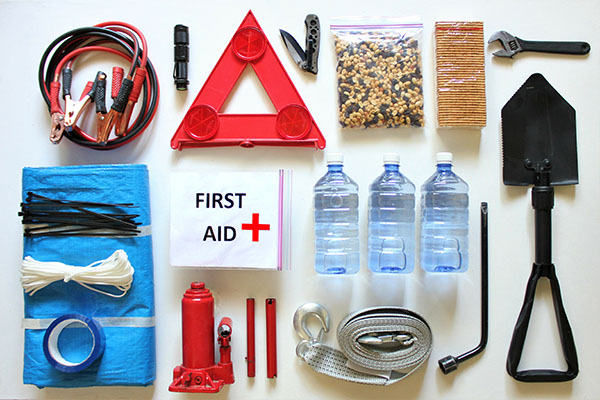
When it comes to traveling by car, having a well-equipped emergency kit is vital for your safety and peace of mind. Whether you're planning a long road trip or simply commuting to work, being prepared for unexpected situations can make all the difference. Below, we will explore must-have items for your car emergency kit, ensuring you're equipped to handle various roadside emergencies. 1. Basic Tools A set of basic tools is essential for minor roadside repairs and adjustments. Include items such as a wrench, pliers, screwdrivers (both flathead and Phillips), and an adjustable crescent wrench. These tools can help you address common issues like loose screws, minor engine adjustments, or battery terminal tightening. 2. Jumper Cables A dead car battery can be a frustrating situation, but with a set of jumper cables, you can quickly get back on the road. Choose heavy-duty, properly insulated cables and ensure they are long enough to reach betwee ... read more
Posted on 4/30/2023
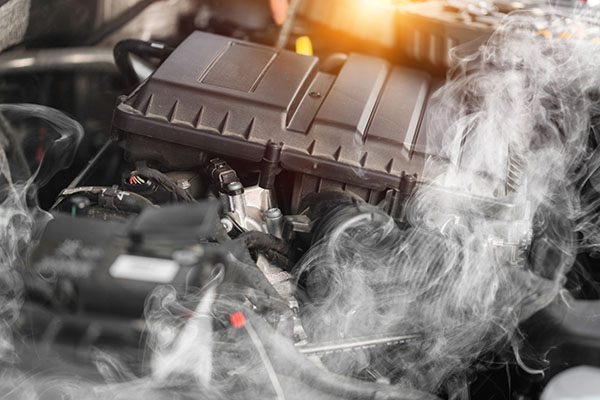
The engine is the heart of your car, which means that it's very, very important. But just like any other component in your vehicle, it tends to have issues and even brakes sometimes. That's why we have made a short list of five warning signs your engine can give before something serious happens. 1. Check Engine Light The most obvious indicator of engine problems is a check engine light, especially if it is flashing. While it is just a simple light, it can mean quite a lot of things, so make sure you don't ignore it or at least visit a shop as soon as you can. 2. Strange And Unfamiliar Noises Unfamiliar noises are never a good sign, especially when talking about engines. It can mean anything from broken parts to forgotten nuts and bolts from a previous repair. Grinding is especially worrisome because it can indicate low oil levels that can cause the engine to fail altogether. 3. Acceleration Is Slow Another obvio ... read more
Posted on 3/29/2023
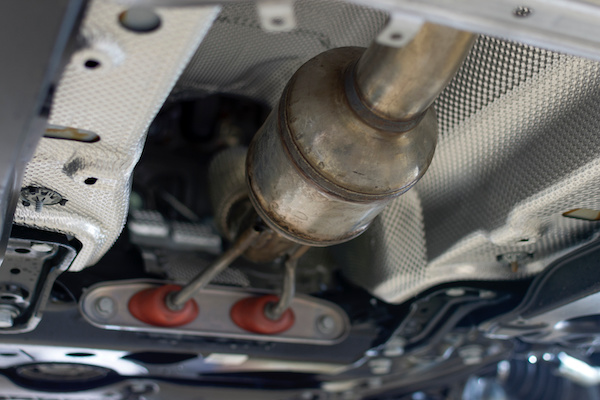
Catalytic converter theft has become an increasingly common problem in recent years, causing a great deal of frustration and expense for vehicle owners. The critical exhaust component is an important part of most vehicles, working to limit the harmful emissions produced by the engine. If you're wondering why thieves are going after this part specifically, keep on reading. What Does the Catalytic Converter Do? This device uses a combination of heat and chemicals to convert harmful exhaust gases into less toxic substances, such as carbon dioxide and water vapor. The converter is made of precious metals, such as platinum, palladium, and rhodium, which are the primary targets for thieves. These metals are valuable and can be sold for a significant profit. In fact, their prices for them have gone up drastically with the hike in inflation. Therefore, catalytic converters are considered an easy cash grab for criminals. Additionally, the design of the catalytic converter itself m ... read more